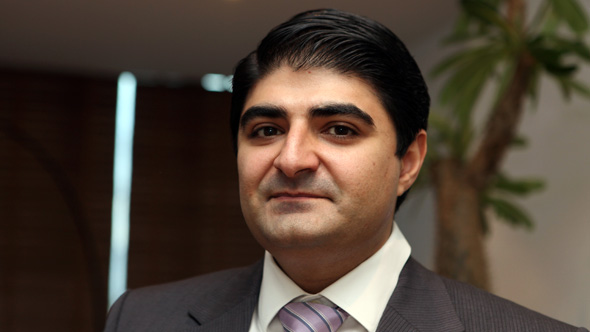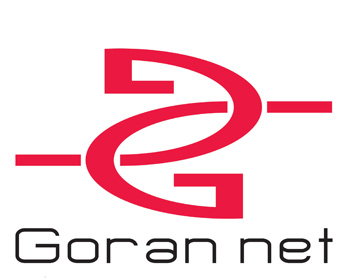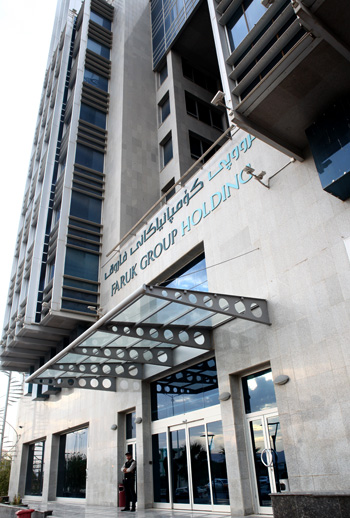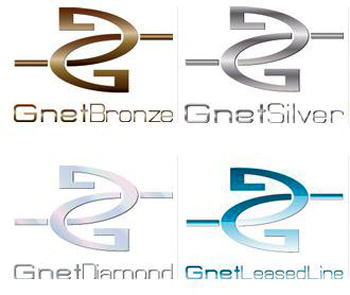Goran Net: Interview with Goran Net
Mr. Noori discusses various regulations that could facilitate their operation in the Kurdistan region of Iraq. These regulations include removal of every monopoly and privatization of land lines and cables. Also, there is a great need for a total review of all the 21 licenses issued by the Ministry of Communication. Nevertheless, the fiber-optic network in Kurdistan is witnessing a rapid expansion and progress at the moment.

There is a lot of customer feedback which claims that despite promises of excellence, Kurdistan region internet providers offer poor quality connection. What is your overview of the internet market in the Kurdistan region and how is it different from other GCC countries and even developed markets?
First of all, I don’t agree 100% that the offers that are being serviced by companies in Kurdistan are of very poor quality. I wouldn’t say that it’s up to European and Western standards, but compared to the rest of Iraq, which we are still a part of, it’s actually quite good. However, they do have a point in that it is not up to their expectations and that problem is due to many factors. One of the biggest factors is the high cost of internet bandwidth and international connectivity which is still very high compared to any other country in the region and the West as well. We are seeing prices dropping right now but they are still very high. So it’s going to be one of two ways. Either the internet service is of a poor quality because the service provider is not able to get as much internet capacity as needed, or it is going to be a very expensive service as a result of the expensive international connectivity.
The background of that problem is in my opinion the fault of the government. It hasn’t encouraged competition with international connectivity or what we could call the higher-tier  service providers. For example, there is a company in Erbil called Newroz Telecom, from which we are getting some of our internet capacity, and they have a monopoly in connecting with Turkey which is the shortest route to the internet for us. Then there is another company here in Sulaymaniyah called IQ Network that goes through Iran because of that monopoly that Newroz Telecom has. So out of this policy, we see that there is no competition between these service providers, especially in Erbil and Dohuk, because that is the bigger market and that is where Newroz Telecom has a monopoly. So this is a very big problem. For example, the internet prices here in Sulaymaniyah are significantly lower than they are in Erbil and in Dohuk.
service providers. For example, there is a company in Erbil called Newroz Telecom, from which we are getting some of our internet capacity, and they have a monopoly in connecting with Turkey which is the shortest route to the internet for us. Then there is another company here in Sulaymaniyah called IQ Network that goes through Iran because of that monopoly that Newroz Telecom has. So out of this policy, we see that there is no competition between these service providers, especially in Erbil and Dohuk, because that is the bigger market and that is where Newroz Telecom has a monopoly. So this is a very big problem. For example, the internet prices here in Sulaymaniyah are significantly lower than they are in Erbil and in Dohuk.
Another thing is the lack of standardization and the lack of knowledge of the Ministry of Communication in Erbil. For example, they don’t have any criteria when giving out licenses. There are some companies that have acquired licenses from the government that haven’t operated on them for several years. I know a few companies that have a license in their hands for many megahertz and they have had it for five or six years without having an operational network. This is something that also drives the quality down because they give out licenses to companies that are not qualified for the job, neither in technical expertise nor capital requirements.
As you know, setting up and installing a nationwide wireless network takes a huge amount of capital. That amount of capital is not available everywhere; it is still in the hands of a few big corporations and holding companies and a few rich individuals. Unfortunately, some of these licenses have been given out due to political connections to persons who are in no way familiar with the telecommunication market and who do not have the capital to set up and run such a network. I have an example of this. There is a company right now that has acquired an entire band of about 70 megahertz which is designated for a certain type of internet service. It is virtually impossible to use all of this with only one company. At the same time, it also almost doesn’t bring any additional advantage to that company besides driving any competition out. This is a problem of the ministry and of the regulatory bodies in Kurdistan. Unfortunately, we don’t have any regulatory body like Iraq which has the CMC. Every power and every license issuance is in the hands of the ministry and the ministry unfortunately works in a very unprofessional and bad way.
We had some research done by a very prominent consulting services company based in France, and their take on the overall penetration rate in Iraq was about 11 to 12%. But their take on the internet penetration rate in Kurdistan was about 20%.
This licensing procedure in the Kurdistan region is the responsibility of which ministry?
Actually it is in a very grey legislative area. It states that the power of issuing licenses is in the hands of the central government; however, in reality, before the fall of the regime in 2003, some licenses had been issued by the government. Those became de facto licenses with CMC as well. It’s not a nationwide license; however, CMC doesn’t challenge those licenses. At the same time, the central government so far hasn’t been that interested in the internet market. What they have focused on is the mobile telephone market. For example, there are no new mobile operators in Kurdistan that have a license from the MOC because that’s a red line with the CMC. But most of the licenses that have been given out here are internet-only licenses.
What has been the progress with the nationwide fiber-optic network?
Actually, in Iraq, the former regime had, for that time, a very extensive fiber-optic cable network especially up until 1991 before the Gulf War. It was mostly used for military purposes, not for civilian communications. The fiber-optic network is still in place; it was damaged during the wars but it was repairable. Even before 2003, they still made some repairs and did some expansion on that network. After 2003, there was still some investment going into that market and I believe that ITPC, the state company for the internet and telephone market, has been very wise about getting private investments into their company by promising them long-term contracts in return for fiber cable. So the actual fiber-optic network in the southern and middle part of Iraq is actually more expansive than it is here in Kurdistan.
Here in Kurdistan we are seeing a very rapid expansion and rapid progress being made in that field. However, as I said, because of the monopolies initiated by the local Ministry of Communication, that has unfortunately affected the overall fiber-optic cable infrastructure in Kurdistan.
There are no statistics on the internet penetration rate. The one that bases the number on Facebook users versus the population shows it at 6.19%. What is your own take on internet penetration in Iraq and Kurdistan in particular?
As you said, there isn’t any definite number or any excellent number that you can rely on; however, we had some research done by a very prominent consulting services company based in France, and their take on the overall penetration rate in Iraq was about 11 to 12%. But their take on the internet penetration rate in Kurdistan was about 20%. So it was about 8 to 9 percentage points higher than the rest of Iraq. As for the Facebook penetration, out of that 11 to 12% of the total population of Iraq, about 50 to 55% of those internet users are active on Facebook. So it’s about 5.5 to 6% active Facebook users of the total population and the same goes for Kurdistan, so about half of the 20% are using Facebook.
What are the particular regulations you would like to see adopted in order to facilitate your operation?
The ministry actually has a lot to do if they want to see the market grow and if they want to see better services. First, they should end every monopoly right away. The second thing is the privatization of the land lines and fiber-optic cable and every underground cable. They have done some of that. For example, here in Sulaymaniyah there is a company called Kurdtel that is doing that but still, it is partially owned by the government. There is a company in Erbil, Newroz Telecom, that also has a monopoly. They are the sole operator of the existing land lines and land telephone in Erbil and Dohuk. My belief is that it should be opened to more than one or two companies; there actually should be competition between them. Maybe there could be a way that the government could do some of the investment and lease out those lines to companies. Then you will see true competition between service providers.
This is of course on a fixed line; however, on wireless, I think there should be a total review of all the licenses that the ministry has issued. The ones that are not operational should be revoked immediately because they have been given more than enough time to operate. Then there should be a review of the ones that are also operational. For example, a company doesn’t need 70 megahertz to operate an internet service company; they should be stripped of some of that capacity. At the same time, I think that there should be an independent, non-party-affiliated and also not affiliated to the government whatsoever, regulatory body that oversees the internet market and the overall telecommunications market in Kurdistan. Only in that case will we see progress being made in this field.
As you said, the Ministry of Communication has given out 21 licenses and some of these companies are not active.
Actually it is very interesting. They are mentioning Kurdtel as an internet service provider; they are not an internet service provider. They are only providing land line telephones and that’s it. We are actually leasing their lines to operate. We are a minority stakeholder in Kurdtel with about an 11% stake in the company; they hold the holding company.
You mentioned that you are one of the most promising companies within the Faruk Group Holding; however, there are huge challenges. You are not allowed to operate outside Sulaymaniyah. So how do you structure your company under these tremendous challenges you are facing?
I don’t think that we should expect everything to be offered to us on a platter; we should fight for it and struggle to get what we want. One of the things that we are currently doing and that we have taken the government and the ministry in particular to court over it, is because of the revocation of our previous license. Now within the process, we have actually sued the ministry and we are quite confident that it will turn out in our interest because it was a totally illegal and unjustifiable move by the ministry. This is on the legal front.
On the strategy front, we believe that, first we are a fixed internet service provider, that’s our background. We also believe that part of the future still lies in this field; however, the more significant growth will be seen in the wireless networks. We firmly believe in LTE and that’s where we plan to head. That’s where all of our focus is and what we’re aiming for. So hopefully once we have a license, we’ll build a nationwide network here in Kurdistan, offering hopefully very good services compared to what exists right now. And hopefully, even higher or comparable to the services that we see in the GCC countries.
This requires a huge investment.
It does require a lot of investment. Actually because of the huge financial capabilities of the holding group that we are part of, we don’t think that we will face any financing problems. First of all, the company has a lot of capital to invest in such a network, especially if it’s such a promising business. At the same time, because of the reputation of the holding group, we won’t face any financing problems. It would probably be very easy for us to get a loan for such a project, either through local or international banks.
Another challenge with LTE is that only the new iPhone that can actually utilize the technology. People in Kurdistan don’t have the devices to use LTE.
Actually, I think you would be surprised how many iPhones are actually used here in Kurdistan, even though we don’t have a 3G network. Not only don’t we have an LTE network, we actually don’t have a 3G network here except for a small company that works in Erbil and Dohuk. But there are still many smartphone users, especially of iPhones. I firmly believe in the concept of “if you build it, they will come”. I think that we should drive the demand. We should drive what people actually want to use. In my opinion, the only reason why people don’t buy LTE-capable devices is because we don’t have an LTE network. However, if you have an LTE network, then people will surely buy and utilize such devices. Actually, most new devices are becoming LTE-capable because that’s where the standard is heading. So the new iPhone 5 supports about five different LTE standards; the new iPad is the same thing. We see this in the new Samsung Galaxy S3 which also supports multiple LTE standards. So this is becoming more common. Whatever new device comes out, it will surely have LTE capability built-in so I don’t think we will face the problem of lack of devices.
Back to your strategy, you are fighting on the legal front for the future. What about the present? How can you compete in the current market?
We have been fortunate enough to have an extensive fixed network here in Sulaymaniyah. Up until now, fixed line services have been far superior to wireless services. Probably with the coming of LTE that will change a bit, but so far no other standard has been able to compete with fixed line operations. So as I said, we have been fortunate with that, but at the same time, we still believe that there is huge potential for fixed line services, especially with fiber to home. We are actually seeing that right now. We have five pilot projects here in Sulaymaniyah in which we are offering up to 100 megabits per second for each user and this I think is the future of fixed line services. We should invest quite a lot in fiber-optic cables inside cities, not inter-city, but inside cities. Whenever a new housing project is built, we should be there and we should be the first to install the fiber cables. We should even go ahead and install fiber cables within the city. This is also one of our ambitions and what we are aiming for as a company strategy.
Is Newroz Telecom providing fixed line internet in Sulaymaniyah?
Not in Sulaymaniyah. There are actually two fixed line ISPs in Sulaymaniyah right now; Goran net and the other company is called Wide Telecom. However, Wide Telecom is still in the process of building their network so they are very small.
So you have a little bit of time before competition reaches you.
Actually, because of the narrow geographic area in which we operate, we have faced competition, especially in those places in which we don’t have any network. But we do feel that with the expertise that we have, with the technical capabilities that the company has, even in terms of technical staff and engineers, and the good financial backing of Faruk Group Holding, our holding company, we are able to compete in such a market. Of course, that is in a healthy competitive market, not a competitive market driven by monopolies and politically-driven decisions by the government.
You seem to be a young professional that speaks fluent English which is a good profile of the business that is evolving in the Kurdistan region. What are your views on doing business in Kurdistan? What are your frustrations, what would you like to achieve, and what is your philosophy? Do you find the younger generation different from the older generation in terms of business?
For the first part of your question, doing business in Kurdistan, I think that the gains and advantages far outweigh the risks. That is my opinion. It’s a very promising business environment. I believe that the FDI regulations are quite good compared to other developing countries. Companies can actually work far more freely than they can, for example, in Iraq. However, sometimes that absolute freedom creates a problem and I think that’s where we do face some problems where there is a lack of regulation and supervision by independent bodies. I’m not saying that this should be done by a government institution; however, it should be an independent body that does this kind of supervision and regulations, as an overseeing of the market that they specialize in.
As for the second part of your question about my generation facing problems with the older generation, I think that it can be seen very clearly. Still, my generation is seen as, not only young, but almost childish unfortunately because we are a very patriarchal society. Because we are such a society, we still put a lot of emphasis on age and we see age as wisdom. In my belief, there is no connection between these whatsoever. Of course, with age comes more wisdom and more expertise, but it doesn’t necessarily mean that an older person is smarter than a younger person. But I think the attitudes are changing, especially with the younger generation now going abroad through the government-assisted program to go abroad for master’s and Ph.D. degrees and then return to Kurdistan. I think it’s inevitable that this will change and hopefully my generation and the generation after me will take over or at least will be more involved in the decision-making process.
Do you strongly believe in the impact your generation will have?
I think if the government, the political parties, and the older generation allow my generation to go ahead and actually take chances, I’m a firm believer in this.